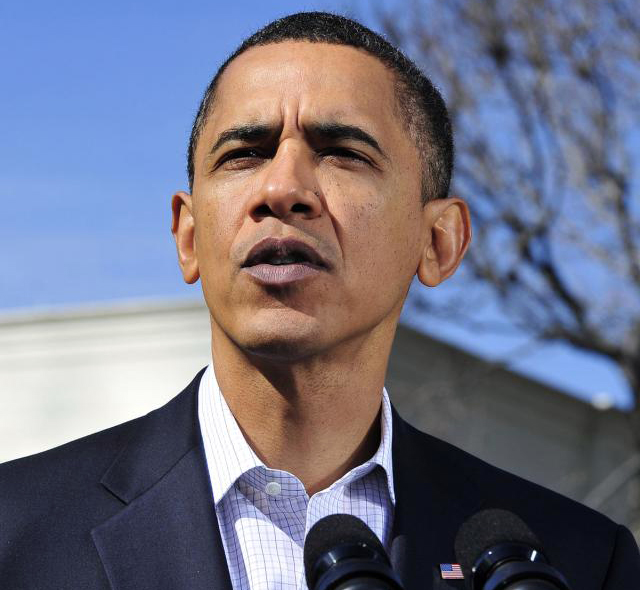
Whether through dramatic events or the power of personality, presidents change the course of the nation. Lincoln (the Civil War); FDR (The New Deal and winning World War II); and LBJ (The Great Society, civil rights and the Vietnam debacle) are prime examples. Now, President Barack Obama could join this select group. And, for better or worse, the consequences will be profound.
President Obama could become de facto Prime Minister Obama.
The current cliche in Washington is that government is broken. Actually, the condition is far more acute. The political foundation of the United States was predicated on a representative democracy manifested through a system of checks and balances in which Congress in Article I of the Constitution was meant to be the dominant branch. Political parties were unmentioned.
Of the potential systemic flaws, two are particularly relevant. First, was the emergence of the presidency as the most important arm of government. Second, was that this construct was dependent upon political parties that ultimately could compromise.
But after three or four decades, the weight of Vietnam, Watergate, campaign financing and the radicalization and influence of the extreme wings of both parties has made compromise increasingly difficult. Indeed, the ideologically hardening of both Republicans and Democrats means that checks and balances have frozen the functioning of government. A dysfunctional system is now virtually inoperable when it comes to governing.
On top of that, the sheer number of intractable issues requiring government action has never been larger. While none of these challenges and dangers has the catastrophic threat of thermonuclear Armageddon during the Cold War, the disruptive effects of failing to deal with the economic crises, unemployment, healthcare as well as terror and the rise of hostile non-state actors can bring the nation to its knees. The healthcare debate highlighted by last week’s White House summit could be the catalyst for making Obama a transformational president. Yet, the transformation may not be to the nation’s liking.
Ideology not reason, compounded by partisanship focusing on the forthcoming November elections, makes any compromise over health care impossible. The choices for Democrats will be to accept defeat or force a party line vote over what is called “reconciliation” by the Senate. Reconciliation means a simple majority rather than a “super-majority” of 60 votes is needed for passage.
In essence, the use of a simple majority vote will turn checks and balances and a presidential democracy into a de facto parliamentary system overseen by a prime minister. Because both parties are driven by ideology of its more extreme wings, the only way legislation and action can follow is for Americans to chose one of those two alternatives and empower one party to act. Under those circumstances, the president will assume a greater party role and leading his majority in Congress. The out-of-power party would bide its time until the next bi- or four-year election.
The advantage of a prime ministerial system means that the government can have greater freedom of action. The disadvantage is that ideology will dominate decision. For both sides, that ideology is almost certainly more extreme and does not reflect Americans preference for the center. The uncertainty is whether the power to act will or will not reduce the power of ideology or even make it stronger. And it is the nature of our government to find work arounds to circumvent the political process.
Reality must not be ignored. Returning to the challenges, threats and dangers facing the nation, government must grapple with issues of great complexity that cannot be resolved simply or easily. Debt, deficits and jobs require enormous understanding of detail and unintended consequences. Iraq, Afghanistan, Iran and the myriad of foreign policy conundrums likewise require intellect, analysis and rationale responses. The use of slogans embracing “war on” distort and deflect good choices and are products of this ideological grand canyon dividing the body politic.
Amendment of the Constitution or a rejection of ideological extremes by both parties will not happen for the short term if at all. The Senate is the one institution that could restore balance. That means that loyalty to the nation and institution and not to the party dominates ideology. More cross-aisle collaboration will be essential to bringing the system back to equilibrium. Moreover, a less-partisan Senate will have a calming effect on both ends of Pennsylvania Avenue. Regrettably, the need for campaign financing and the nature of today’s partisan politics makes returning to a less-ideologically driven government elusive and probably non-obtainable.
In these circumstances, no good or easy solution will be forthcoming. If President Obama elects to use the simple majority alternative, he will well be on the road to becoming Prime Minister Obama – the most significant inflection point in U.S. governance in nearly half a century and maybe the most dangerous.
Harlan Ullman is an Atlantic Council Senior Advisor and chairman of the Killowen Group that advises leaders of government and business. This column was syndicated by UPI. Photo: UPI.
Image: Obama2.jpg
